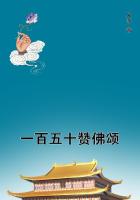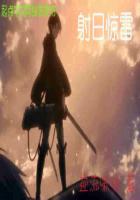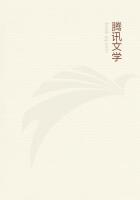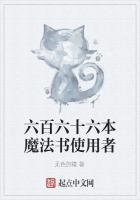It may be said that Dumas is not a master of words and phrases, that he is not a raffine of expression, nor a jeweller of style. When Iread the maunderings, the stilted and staggering sentences, the hesitating phrases, the far-sought and dear-bought and worthless word-juggles; the sham scientific verbiage, the native pedantries of many modern so-called "stylists," I rejoice that Dumas was not one of these. He told a plain tale, in the language suited to a plain tale, with abundance of wit and gaiety, as in the reflections of his Chicot, as in all his dialogues. But he did not gnaw the end of his pen in search of some word that nobody had ever used in this or that connection before. The right word came to him, the ****** straightforward phrase. Epithet-hunting may be a pretty sport, and the bag of the epithet-hunter may contain some agreeable epigrams and rare specimens of style; but a plain tale of adventure, of love and war, needs none of this industry, and is even spoiled by inopportune diligence. Speed, directness, lucidity are the characteristics of Dumas' style, and they are exactly the characteristics which his novels required. Scott often failed, his most loyal admirers may admit, in these essentials; but it is rarely that Dumas fails, when he is himself and at his best.
In spite of his heedless education, Dumas had true critical qualities, and most admired the best things. We have already seen how he writes about Shakespeare, Virgil, Goethe, Scott. But it may be less familiarly known that this burly man-of-all-work, ignorant as he was of Greek, had a true and keen appreciation of Homer.
Dumas declares that he only thrice criticised his contemporaries in an unfavourable sense, and as one wishful to find fault. The victims were Casimir Delavigne, Scribe, and Ponsard. On each occasion Dumas declares that, after reflecting, he saw that he was moved by a little personal pique, not by a disinterested love of art. He makes his confession with a rare nobility of candour; and yet his review of Ponsard is worthy of him. M. Ponsard, who, like Dumas, was no scholar, wrote a play styled Ulysse, and borrowed from the Odyssey. Dumas follows Ponsard, Odyssey in hand, and while he proves that the dramatist failed to understand Homer, proves that he himself was, in essentials, a capable Homeric critic. Dumas understands that far-off heroic age. He lives in its life and sympathises with its temper. Homer and he are congenial; across the great gulf of time they exchange smiles and a salute.
"Oh! ancient Homer, dear and good and noble, I am minded now and again to leave all and translate thee--I, who have never a word of Greek--so empty and so dismal are the versions men make of thee, in verse or in prose."How Dumas came to divine Homer, as it were, through a language he knew not, who shall say? He DID divine him by a natural sympathy of excellence, and his chapters on the "Ulysse" of Ponsard are worth a wilderness of notes by learned and most un-Homeric men. For, indeed, who can be less like the heroic minstrel than the academic philologist?
This universality deserves note. The Homeric student who takes up a volume of Dumas at random finds that he is not only Homeric naturally, but that he really knows his Homer. What did he nor know? His rapidity in reading must have been as remarkable as his pace with the pen. As M. Blaze de Bury says: "Instinct, experience, memory were all his; he sees at a glance, he compares in a flash, he understands without conscious effort, he forgets nothing that he has read." The past and present are photographed imperishably on his brain, he knows the manners of all ages and all countries, the names of all the arms that men have used, all the garments they have worn, all the dishes they have tasted, all the terms of all professions, from swordsmanship to coach-building.
Other authors have to wait, and hunt for facts; nothing stops Dumas:
he knows and remembers everything. Hence his rapidity, his facility, his positive delight in labour: hence it came that he might be heard, like Dickens, laughing while he worked.
This is rather a eulogy than a criticism of Dumas. His faults are on the surface, visible to all men. He was not only rapid, he was hasty, he was inconsistent; his need of money as well as his love of work made him put his hand to dozens of perishable things. Abeginner, entering the forest of Dumas' books, may fail to see the trees for the wood. He may be counselled to select first the cycle of d'Artagnan--the "Musketeers," "Twenty Years After," and the "Vicomte de Bragelonne." Mr. Stevenson's delightful essay on the last may have sent many readers to it; I confess to preferring the youth of the "Musketeers" to their old age. Then there is the cycle of the Valois, whereof the "Dame de Monsereau" is the best--perhaps the best thing Dumas ever wrote. The "Tulipe Noire" is a novel girls may read, as Thackeray said, with confidence. The "Chevalier d'Harmenthal" is nearly (not quite) as good as "Quentin Durward.""Monte Cristo" has the best beginning--and loses itself in the sands. The novels on the Revolution are not among the most alluring: the famed device "L. P. D." (lilia pedibus destrue) has the bad luck to suggest "London Parcels Delivery." That is an accident, but the Revolution is in itself too terrible and pitiful, and too near us (on both sides!) for fiction.
On Dumas' faults it has been no pleasure to dwell. In a recent work I find the Jesuit Le Moyne quoted, saying about Charles V.: "What need that future ages should be made acquainted so religious an Emperor was not always chaste!" The same reticence allures one in regard to so delightful an author as Dumas. He who had enriched so many died poor; he who had told of conquering France, died during the Terrible Year. But he could forgive, could appreciate, the valour of an enemy. Of the Scotch at Waterloo he writes: "It was not enough to kill them: we had to push them down." Dead, they still stood "shoulder to shoulder." In the same generous temper an English cavalry officer wrote home, after Waterloo, that he would gladly have given the rest of his life to have served, on that day, in our infantry or in the French cavalry. These are the spirits that warm the heart, that make us all friends; and to the great, the brave, the generous Dumas we cry, across the years and across the tomb, our Ave atque vale!

